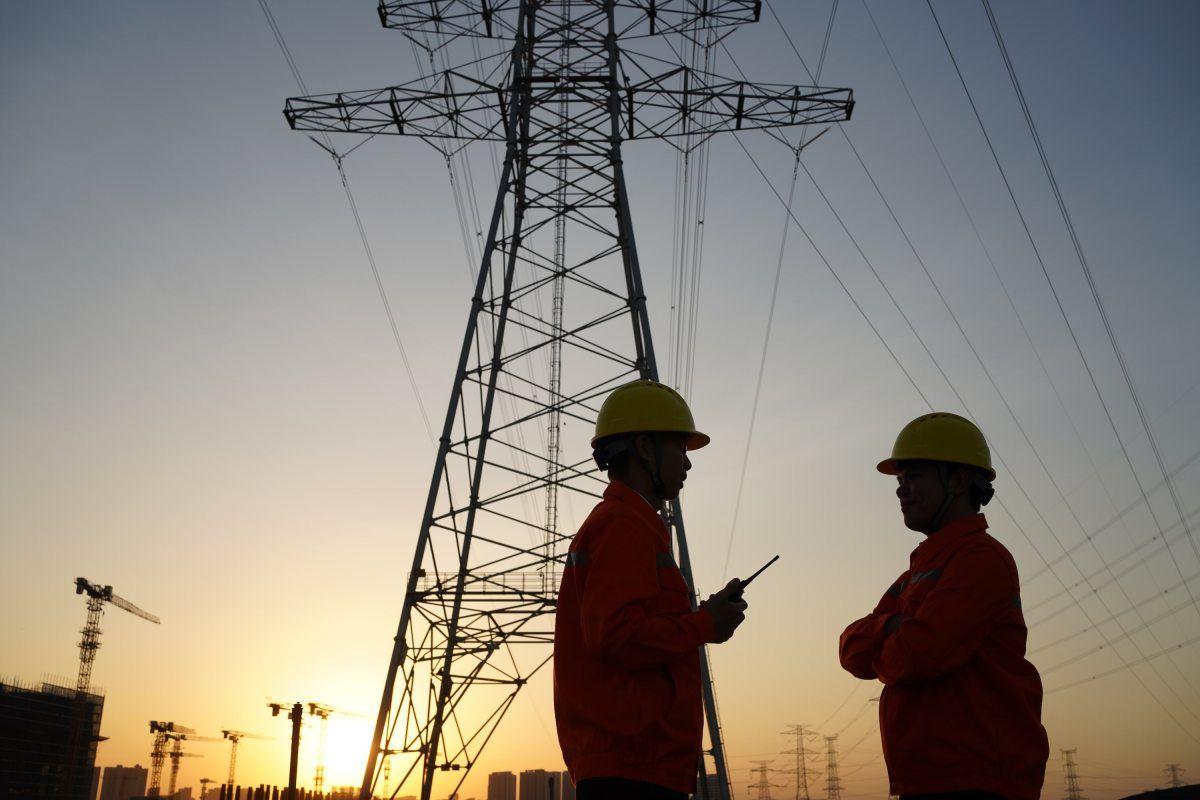US Energy Council Calls for 15% Increase in Power Plant Output to Meet AI Demands
3 Sources
3 Sources
[1]
US energy council chief says power plants to produce 15% more electricity
WASHINGTON (Reuters) - U.S. Interior Secretary and co-chair of a new White House energy council Doug Burgum on Friday called for every U.S. power plant to produce 10-15% more electricity to meet the growing energy needs to expand artificial intelligence across the United States. "Winning the AI arms race doesn't just take software developers. It takes more electricity," Burgum told a meeting of U.S. governors in Washington. "We've got to get every electrical plant in the country that's producing energy to produce more - if they can expand by 10% or 15%, we want to do that," he said. Burgum, who co-chairs the newly-created National Energy Dominance Council with Energy Secretary Chris Wright, said the U.S. should avoid the example of Germany, which he said de-industrialized because it moved too quickly off of fossil fuels as it races to compete with China to become a leader in power-hungry AI. He said the U.S. needs to also rapidly permit new power plants, build new transmission lines and natural gas pipelines to respond to energy demand. (Reporting by Valerie Volcovici; Editing by Daniel Wallis)
[2]
US Energy Council Chief Says Power Plants to Produce 15% More Electricity
WASHINGTON (Reuters) - U.S. Interior Secretary and co-chair of a new White House energy council Doug Burgum on Friday called for every U.S. power plant to produce 10-15% more electricity to meet the growing energy needs to expand artificial intelligence across the United States. "Winning the AI arms race doesn't just take software developers. It takes more electricity," Burgum told a meeting of U.S. governors in Washington. "We've got to get every electrical plant in the country that's producing energy to produce more - if they can expand by 10% or 15%, we want to do that," he said. Burgum, who co-chairs the newly-created National Energy Dominance Council with Energy Secretary Chris Wright, said the U.S. should avoid the example of Germany, which he said de-industrialized because it moved too quickly off of fossil fuels as it races to compete with China to become a leader in power-hungry AI. He said the U.S. needs to also rapidly permit new power plants, build new transmission lines and natural gas pipelines to respond to energy demand. (Reporting by Valerie Volcovici; Editing by Daniel Wallis)
[3]
US energy council chief says power plants to produce 15% more electricity
WASHINGTON, Feb 21 (Reuters) - U.S. Interior Secretary and co-chair of a new White House energy council Doug Burgum on Friday called for every U.S. power plant to produce 10-15% more electricity to meet the growing energy needs to expand artificial intelligence across the United States. "Winning the AI arms race doesn't just take software developers. It takes more electricity," Burgum told a meeting of U.S. governors in Washington. "We've got to get every electrical plant in the country that's producing energy to produce more - if they can expand by 10% or 15%, we want to do that," he said. Burgum, who co-chairs the newly-created National Energy Dominance Council, opens new tab with Energy Secretary Chris Wright, said the U.S. should avoid the example of Germany, which he said de-industrialized because it moved too quickly off of fossil fuels as it races to compete with China to become a leader in power-hungry AI. He said the U.S. needs to also rapidly permit new power plants, build new transmission lines and natural gas pipelines to respond to energy demand. Reporting by Valerie Volcovici; Editing by Daniel Wallis Our Standards: The Thomson Reuters Trust Principles., opens new tab Suggested Topics:EnergyRegulatory OversightGovernanceGrid & InfrastructureExploration & Production Valerie Volcovici Thomson Reuters Valerie Volcovici covers U.S. climate and energy policy from Washington, DC. She is focused on climate and environmental regulations at federal agencies and in Congress and how the energy transition is transforming the United States. Other areas of coverage include her award-winning reporting plastic pollution and the ins and outs of global climate diplomacy and United Nations climate negotiations.
Share
Share
Copy Link
U.S. Interior Secretary Doug Burgum urges power plants to boost electricity production by 10-15% to support AI expansion, emphasizing the need for rapid infrastructure development and avoiding premature shifts away from fossil fuels.

US Energy Council Pushes for Increased Electricity Production
In a bold move to support the burgeoning artificial intelligence (AI) sector, U.S. Interior Secretary Doug Burgum has called for a significant increase in electricity production across the United States. Burgum, who co-chairs the newly-created National Energy Dominance Council, emphasized the critical role of energy in maintaining America's competitive edge in the global AI race
1
.The Call for Increased Power Generation
Speaking at a meeting of U.S. governors in Washington, Burgum stated, "Winning the AI arms race doesn't just take software developers. It takes more electricity." He urged every power plant in the country to boost their output by 10-15%, highlighting the urgent need to meet the growing energy demands of AI expansion
2
.Infrastructure Development and Policy Recommendations
The Energy Council's recommendations extend beyond increasing power plant output. Burgum outlined a comprehensive strategy that includes:
- Rapid permitting of new power plants
- Construction of new transmission lines
- Development of natural gas pipelines
These measures are aimed at swiftly responding to the escalating energy demand driven by AI technologies
3
.Cautionary Tale: Germany's De-industrialization
Burgum drew attention to Germany's experience as a cautionary tale. He argued that Germany's rapid transition away from fossil fuels in its race to compete with China in AI leadership led to de-industrialization. The U.S. Energy Council aims to avoid a similar fate by maintaining a balanced approach to energy production
1
.Related Stories
The National Energy Dominance Council
The newly-formed National Energy Dominance Council, co-chaired by Burgum and Energy Secretary Chris Wright, appears to be taking a proactive stance in shaping U.S. energy policy. Their focus on increasing energy production to support AI development underscores the interconnectedness of energy policy and technological advancement
2
.Implications for U.S. Energy Policy
This push for increased electricity production signals a potential shift in U.S. energy policy, prioritizing abundant energy supply to fuel technological innovation. The approach raises questions about the balance between fostering AI development and addressing environmental concerns, a debate that is likely to intensify as these policies take shape
3
.References
Summarized by
Navi
[1]
Related Stories
US Government Urges Utilities to Keep Coal Plants Running to Meet AI-Driven Energy Demand
26 Sept 2025•Policy and Regulation

OpenAI Urges U.S. Government to Boost Energy Capacity for AI Dominance
27 Oct 2025•Policy and Regulation

Trump administration pressures tech companies to fund $15B power plants amid AI energy crisis
15 Jan 2026•Policy and Regulation

Recent Highlights
1
ByteDance's Seedance 2.0 AI video generator triggers copyright infringement battle with Hollywood
Policy and Regulation

2
Demis Hassabis predicts AGI in 5-8 years, sees new golden era transforming medicine and science
Technology

3
Nvidia and Meta forge massive chip deal as computing power demands reshape AI infrastructure
Technology





